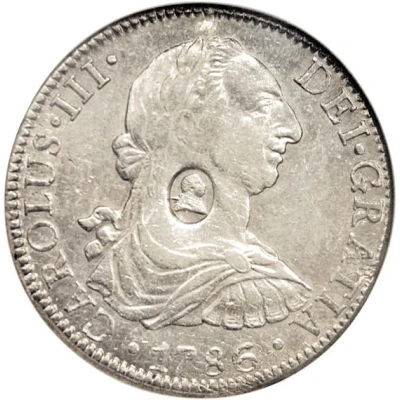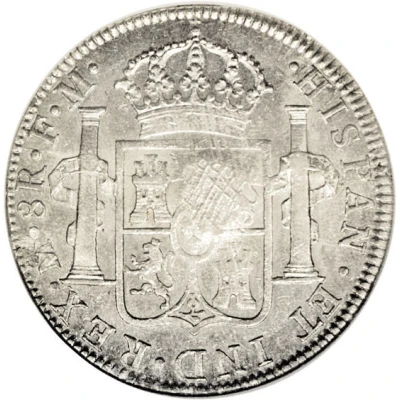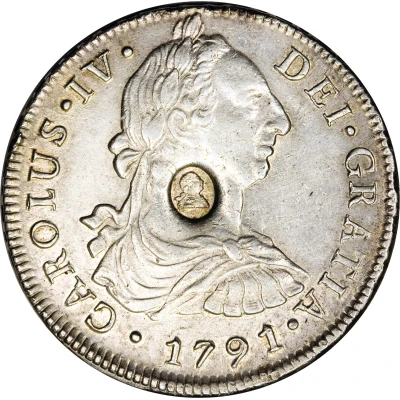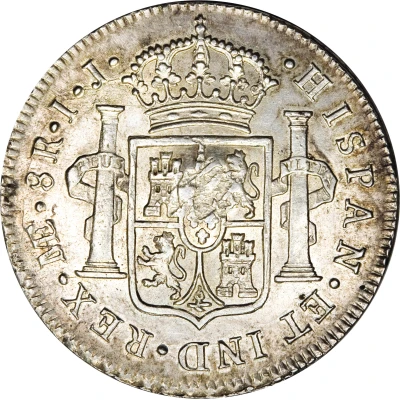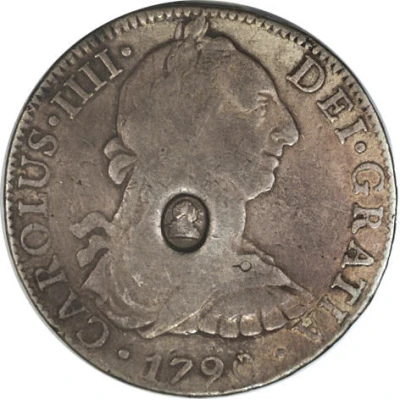
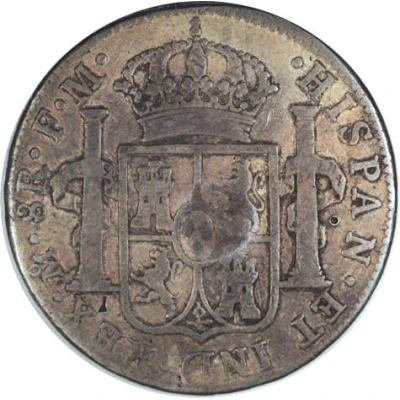

© Heritage Auctions
1 Dollar - George III Type I countermark; oval
| Silver (.903) | 27.1 g | 38.25 mm |
| Issuer | United Kingdom (United Kingdom, British Overseas Territories and Crown Dependencies) |
|---|---|
| King | George III (1760-1820) |
| Type | Standard circulation coin |
| Years | 1789-1790 |
| Value | 1 Dollar = 4 Shillings 9 Pence (19⁄80) |
| Currency | Countermarked coinage (1797-1804) |
| Composition | Silver (.903) |
| Weight | 27.1 g |
| Diameter | 38.25 mm |
| Shape | Round |
| Demonetized | Yes |
| Updated | 2024-10-08 |
| Numista | N#27972 |
|---|---|
| Rarity index | 94% |
Reverse
Crowned shield of arms dividing pillars, legend around.
Script: Latin
Lettering:
·HISPAN·ET IND·REX· Mo · 8R ·F·M·
PLUS VLTRA
Translation: King of Spain and the Indies
Comment
Countermarked Coinage (1797-1804)Emergency issue consisting of foreign silver coins, usually Spanish Colonial, having a bust of George III within an oval (1797) or octagonal (1804) frame. Countermarked 8 Reales circulated at 4 Shillings 9 Pence in 1797 and 5 Shillings in 1804. The puncheons used for countermarking foreign coins for this series were available for many years afterward, especially the oval die and apparently a number of foreign coins other than Spanish or Spanish Colonial 8 Reales were countermarked for collectors.
Issuer: Bank of England; Countermark: Oval, Type I; Date: Dates shown are of the host coin;
Countermarked on Mexico 8 Reales of Carlos IV, KM#107, showing bust of Carlos III.
For more detail on these emergency issues,
please read THE BANK OF ENGLAND COUNTERMARKED DOLLARS, 1797-1804 by H.E. Manville.
Interesting fact
One interesting fact about this coin is that it was minted during a time of great change and upheaval in the United Kingdom. King George III was on the throne during this time, and the country was facing challenges both at home and abroad. Despite these challenges, the coin remains a testament to the craftsmanship and attention to detail of the mint workers who created it. The use of silver and the oval countermark on the coin also make it stand out from other coins of the time.
